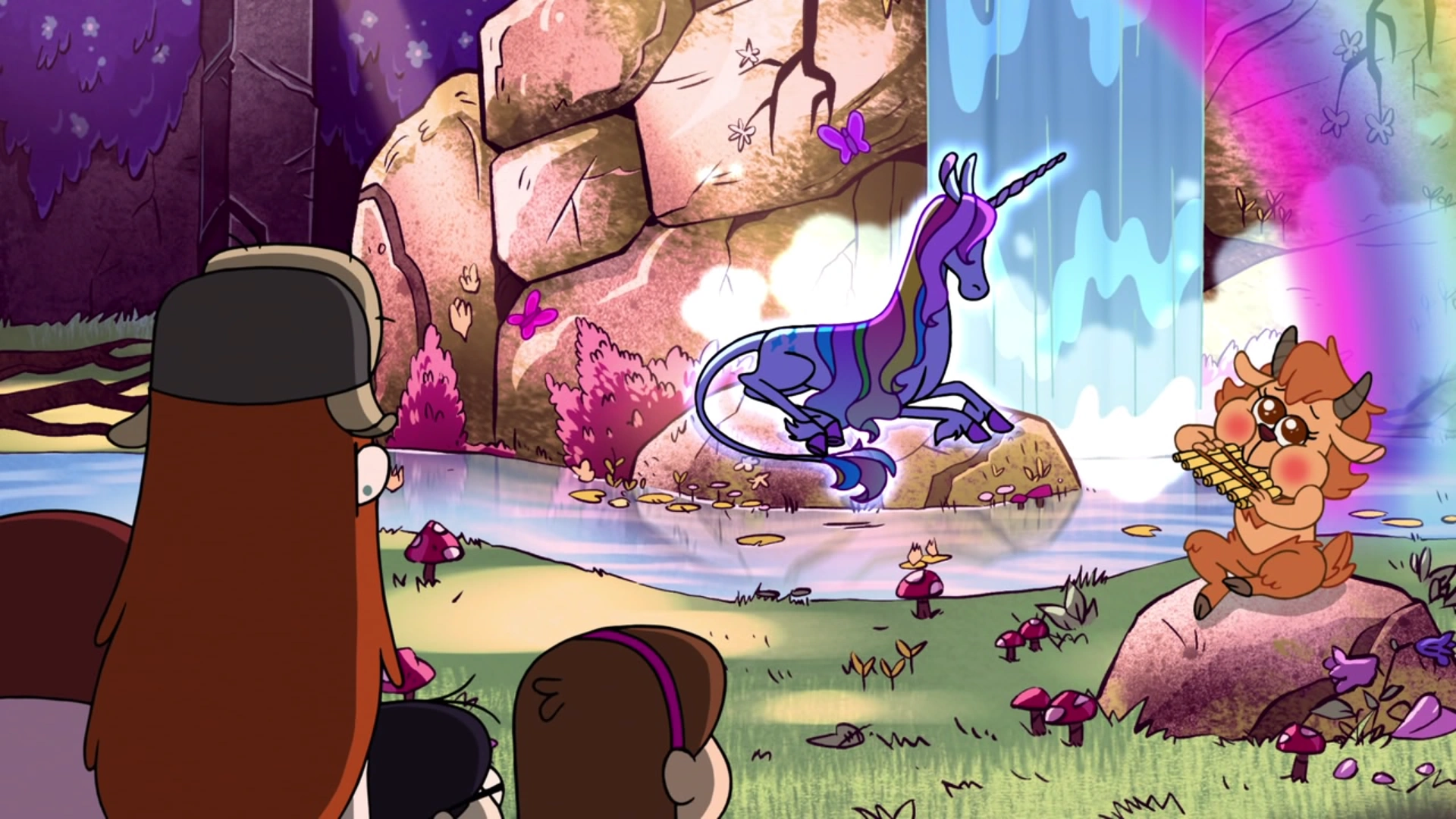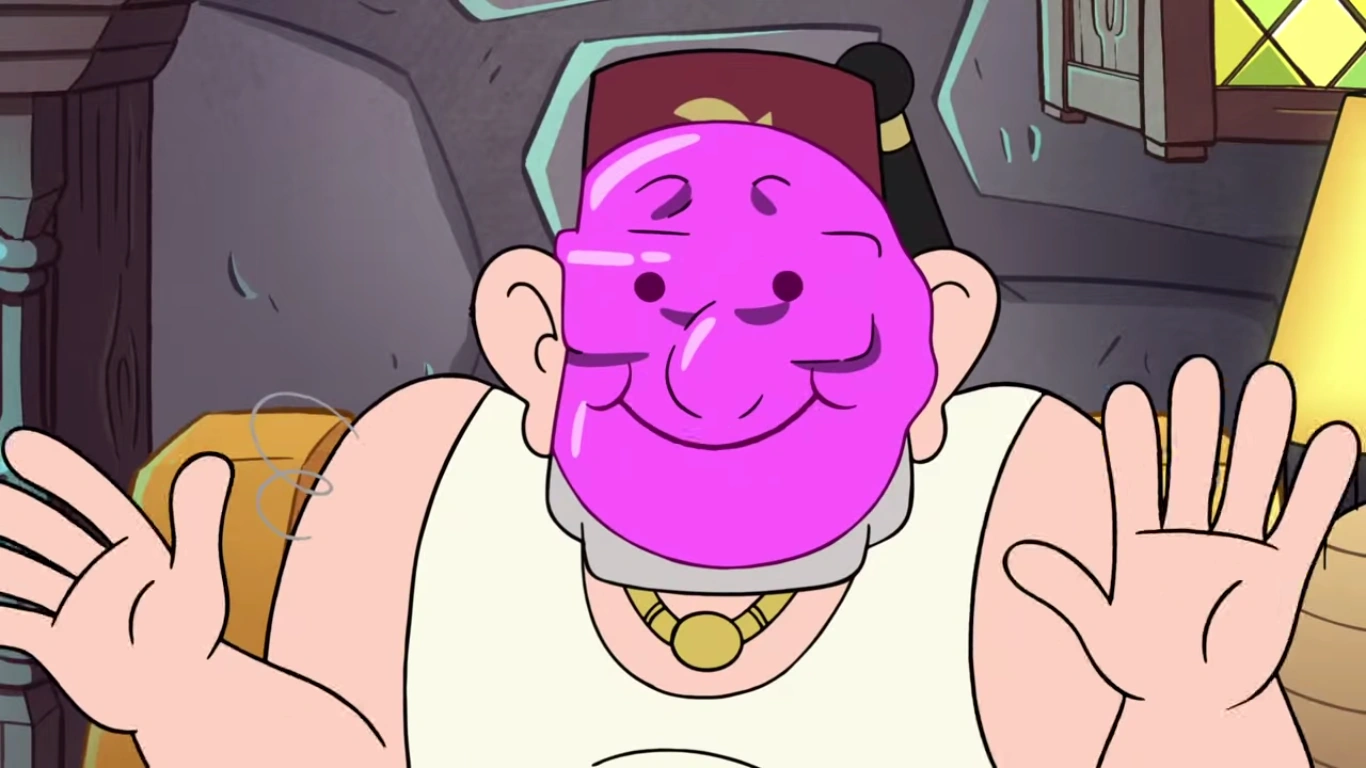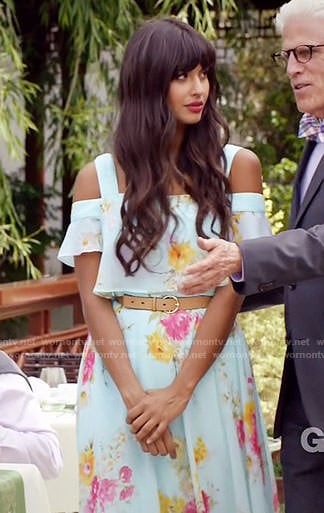Morality, Gravity Falls, and The Good Place
I have to admit, normally I wouldn’t compare a Disney animated show with a morbid NBC sitcom. The two are competing, after all, and occupy vast genres. The Good Place makes a person paranoid about their aftelrife and their good deeds.
Gravity Falls is one of Disney’s best shows, and The Good Place is one of the most introspective sitcoms that a person can watch if they can handle the existentialism. In the meantime, the cartoon takes us on quite a wild ride.
One parallel struck me as I’m going through the shows is from a Gravity Falls episode that involved unicorns, morality, and Bill Cipher. I mentioned it on TV Tropes, and some moderators deleted the note. As a means to defend my case, I’m making my case.
Also, for both shows . . .
SPOILERS
Now that’s out of the way. Moving on.
“Doing Good Things To Make Yourself Look Good Isn’t Very Good At All.”

In the Gravity Falls episode “The Last Mabelcorn,” Mabel seeks to earn hair from a unicorn and prove that she has a pure heart. The unicorn in particular, Celestebellebethabelle, pretends that she can see into people’s hearts and claims that Mabel doesn’t have purity. She says Mabel can’t get any hair until she can prove it. Mabel then tries to do a slew of good deeds: keeping snails from getting stomped on, , and putting a sticky rubber smile on her Grunkle Stan’s face and nearly smothering him.

And here we see the problem: Mabel’s deeds are meant to look good, and not actually benefit people. C-beth, as her fellow unicorns call her, tells her that the good deeds aren’t enough because she was only doing them to make herself look like a better person. Mabel doesn’t get it, and she stops listening when she learns that C-beth lied and no unicorn can judge “purity of heart”. She gets the hair by beating up the unicorn, doing the wrong thing for the right reasons.
Here is the thing: C-beth is right. Mabel is a decent person, but she’s not pure of heart. No one is. We all have our flaws. Plus, our characters are constantly grey. An arbitrary being cannot decide our moral worth.
The important thing is that Mabel can’t learn this lesson now. Instead she learns that “morality is relative”; also a legitimate point that does not lead to reflection or self-improvement. This selfishness leads her to cause the sereis finale by accident, due to wanting to stop time and keep summer permanent. Mabel gets her memories wiped of what she did, as far as we can surmise, and has to learn anew that sometimes you have to do good, not because it makes you a good person, but because people are counting on you to help.
“My motives were morally corrupt.”

The Good Place expands the idea on what it means to do good deeds just to look “good” with Tahani, a first-generation immigrant and philanthropist. Tahani is kind and polite, cooks comfort pastries for people suffering, and raised millions of dollars for charity. At the risk of spoilers, Tahani starts questioning why she did so much good and why she wants everyone to look fondly on her. The answer lies in her family baggage.
I could write a whole essay on Tahani’s family completely assimilating into Western culture, but instead we’re talking about how emotional abuse shaped Tahani’s motives. She and her sister Kamilah were forced to compete in the art world as children, and the end result is that while both were successful, Kamilah knocked down Tahani every time.
In time, Tahani admits that all her charity was part of the childish competition, and to get her parents’ approval just once. It didn’t work; even when she raised five million for a charity auction, they insisted that Kamilah raise even more money by selling off a lunch date with her.

This of course led to Tahani’s death. She blew off a charity trip to go confront her sister about stealing her spotlight again, and Kamilah dismisses her. They both learned how to play this game from their parents, but Tahani snaps when Kamilah won’t even give her the time of day. She tries to take down her sister’s statue; the impact from the fall kills her. Later on, we see Kamilah probably regretted this but couldn’t break the hold their parents had, even after they had died.
Amusingly enough, due to the show’s nature, Tahani also keeps forgetting this epiphany. We see her memories constantly wiped, her mind going through the same motions, and the epiphany emerging at different points. Currently, she is determined to become a better person and commit to genuine selflessness. Tahani has let go of her hatred towards her sister to save Kamilah’s soul; it’s been an uphill battle, but she won that. The unicorn may not deem her pure of heart, but then no one in The Good Place can. Tahani has to give herself that validation.
Closing Thoughts
I find it amusing that the shows both explore this question of what “doing good” truly means. One has an apocalypse, and another has messed-up timelines.
If we want to do good, we have to make sure our actions have a genuinely positive outcome, and we cannot worry about what others think of that. Easier said than done, I know; we donate to charities because we want to help, and sometimes our friends coax us into doing good things so that we fit in with them. But we have to try.
Let’s do good recklessly this year! And let’s not take lessons from unicorns.

